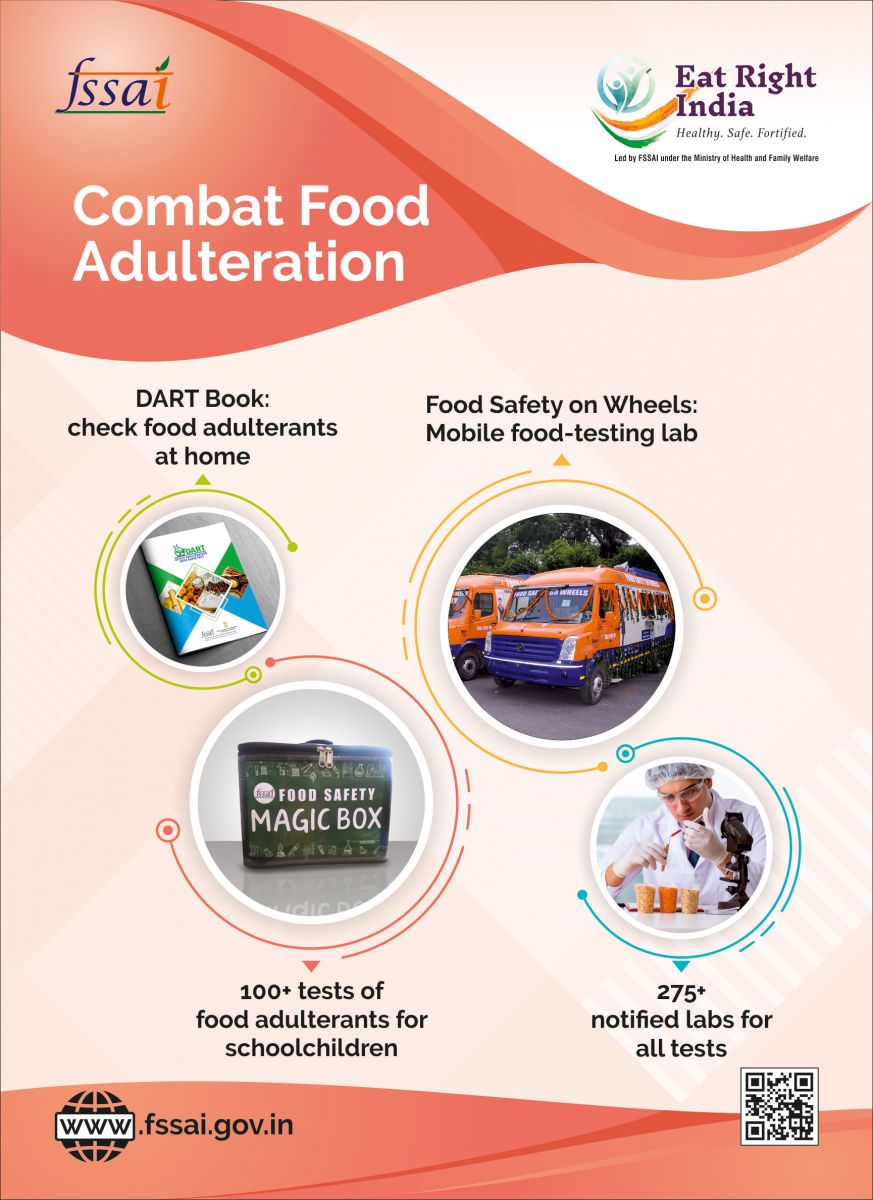
FSSAI
Food Adulteration can be defined as the practice of adulterating food or contamination of food materials by adding a few substances, which are collectively called adulterants. Adulterants are the substance or poor quality products added to food items for economic and technical benefits.
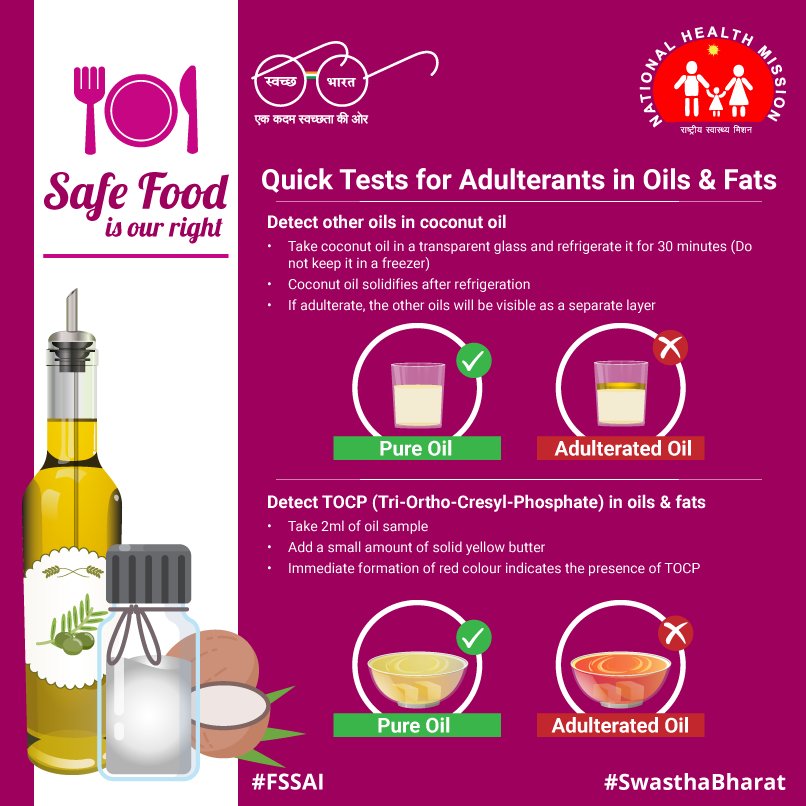
Eat Right School Posters
Broadly, food adulteration is a category of food fraud which is accomplished deliberately by human beings for financial gain [1-5]. It is also termed as economically motivated adul-

Food Fraud and Adulterated Ingredients Background, Issues, and Federal Action Nova Science
Food adulteration refers to the alteration of food quality that takes place deliberately. It includes the addition of ingredients to modify different properties of food products for economic advantage. Color, appearance, taste, weight, volume, and shelf life are such food properties.
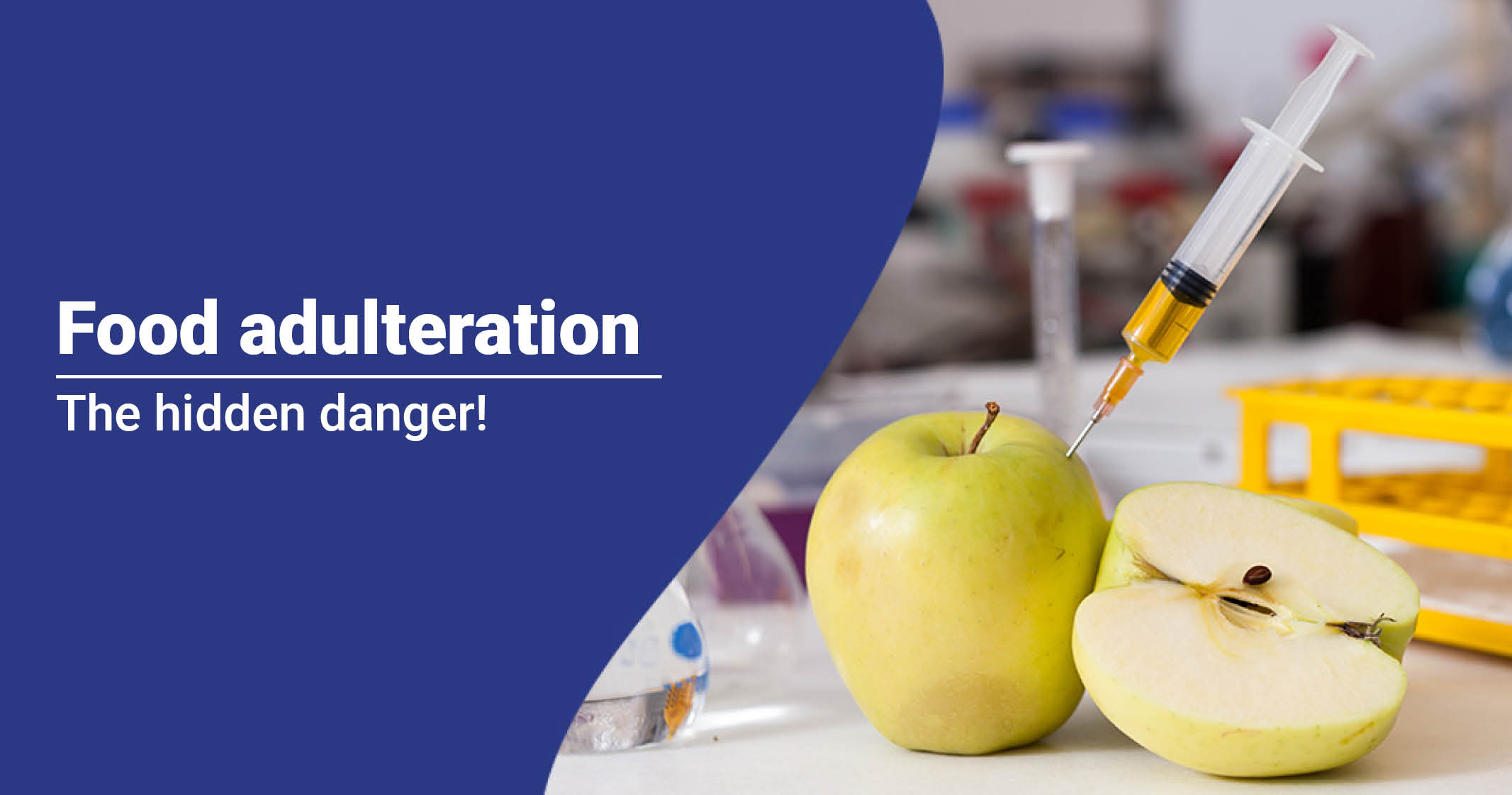
6 Types of Food Adulteration to be Aware of
Food safety and authenticity have become a serious concern among consumers worldwide. Economically motivated practices of food fraud can have widespread implications for public health and reduce the overall food quality. As such, there is a rapidly increasing requirement for more sensitive and accurate methods to detect deliberate adulteration of food commodities. An attempt to summarize the.

food adulteration awareness poster on Behance
Food adulteration can be defined as the addition of cheaper, inferior, harmful, or unnecessary substance (s) to food that could affect the nature and quality of the original food (Bell and Gillatt, 2004). From: Advances in Food Authenticity Testing, 2016 Related terms: Dioxin Edible Oil Food Additive Fruit Juice Functional Food Vegetable Oil
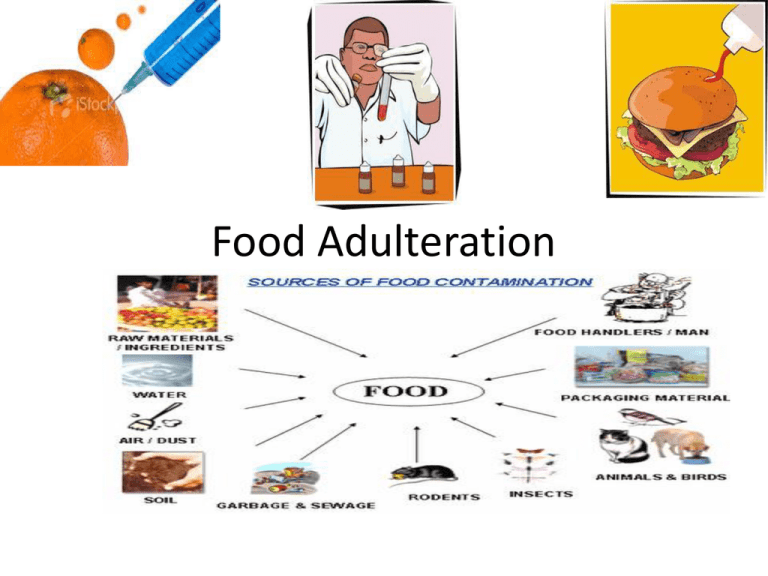
Food Adulteration
Food adulteration has become a threat to many countries as most individuals have consumed food items without knowing that it has been adulterated, leaving the consumer with various ailments. This study identifies the degree of adulteration in some commonly used food items bought by consumers and the means of detection. The study comprised 384 women who patronized various food items for food.
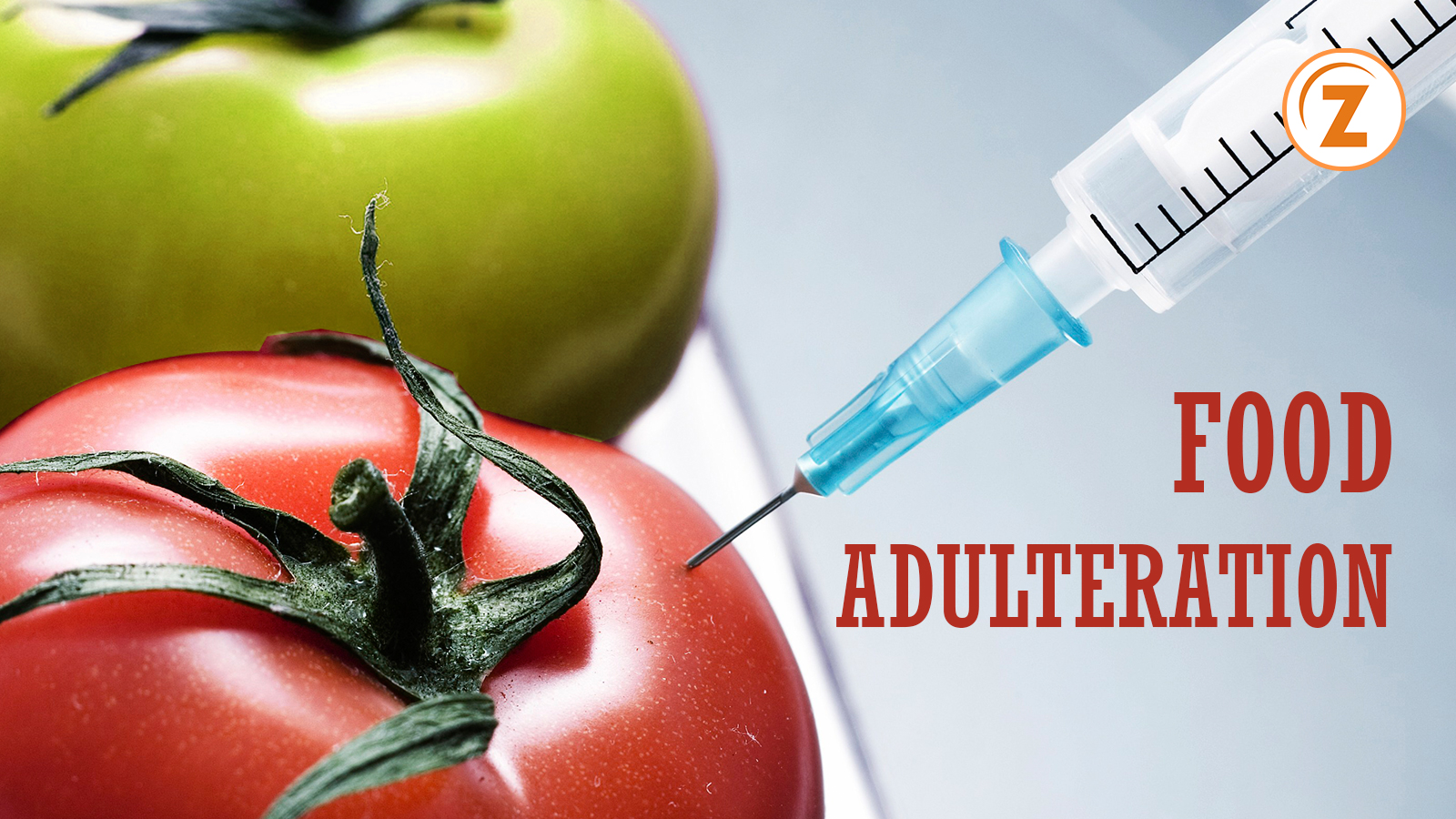
adulteration Liberal Dictionary
Building a New India Healthy & Happy India.

Food Adulteration Covers Everything Yet Reveals Nothing Nutrition Meets Food Science
Food adulteration includes various forms of practices, such as mixing, substituting, concealing the quality of food by mislabelling,. Food safety in Bangladesh: how safe is our food Poster session 2, P130 (336). Paper presented on 10th Asian Conference on Diarrhoeal Diseases and Nutrition (ASCODD), Dhaka, 7-9 December 2003. Dhaka.
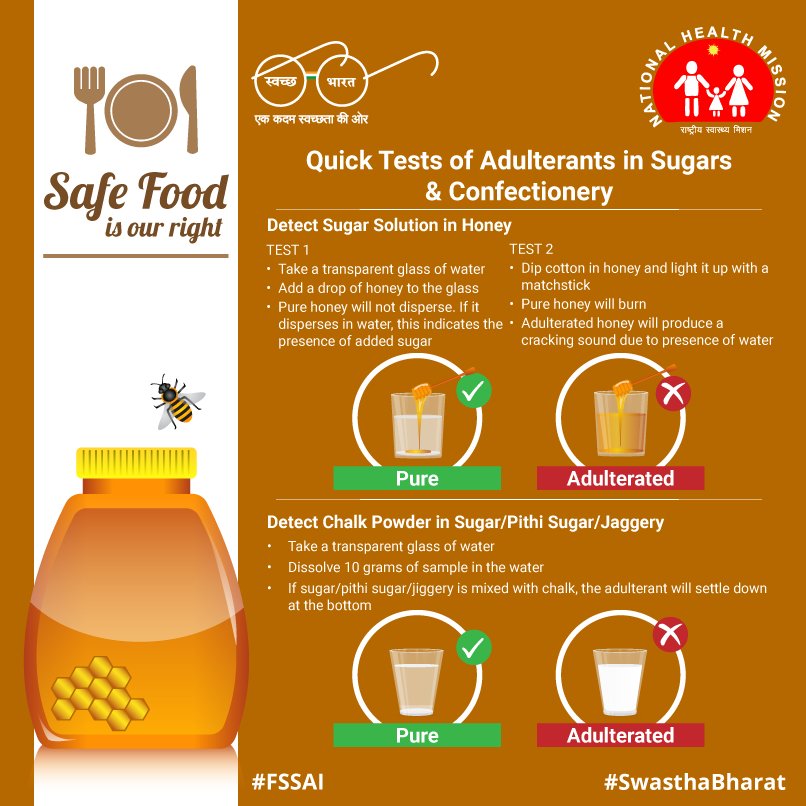
Eat Right School Posters
WASHINGTON: Flagrant food adulteration in many food products was widely prevalent before the enactment of Federal and State food-control laws, say officials of the food, drug and insecticide.

food adulteration brochure Foods Chili Pepper
Food adulteration involves the infusion of useless, harmful, unnecessary substances to food which decreases the quality of food. The problems of adulteration makes the food items used in our daily life unsafe and unhygienic for use due to poor handling. Adulteration in food items can cause tremendous affect on health without our knowledge.

Food Adulteration Act 1954 Definition, Purpose & Authorities Legodesk
Food are organic substances consumed for energy, growth, and nutritional purpose. Food adulteration refers to the process through which the quality of food is lowered [1,2].Broadly, food adulteration is a category of food fraud which is accomplished deliberately by human beings for financial gain [1,2,3,4,5].It is also termed as economically motivated adulteration (EMA) that sometimes gives.
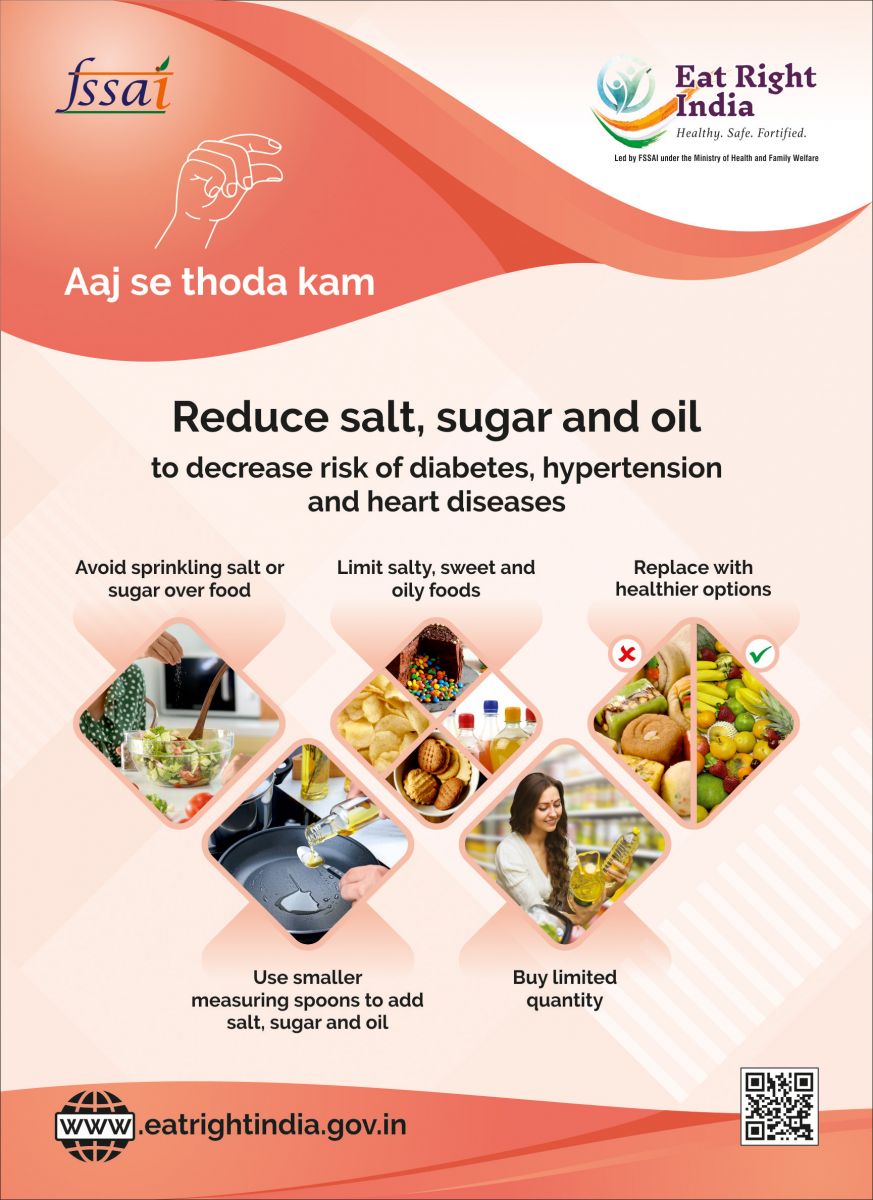
FSSAI
Food adulteration is an increasingly recognized global public health problem. In low- and middle-income countries like Bangladesh, adulteration is difficult to detect and respond to. We explored customers' perceptions on food adulteration, perception of risk and connections between information, participant characteristics and patterns of adulterated food concerns that impact risk perception.
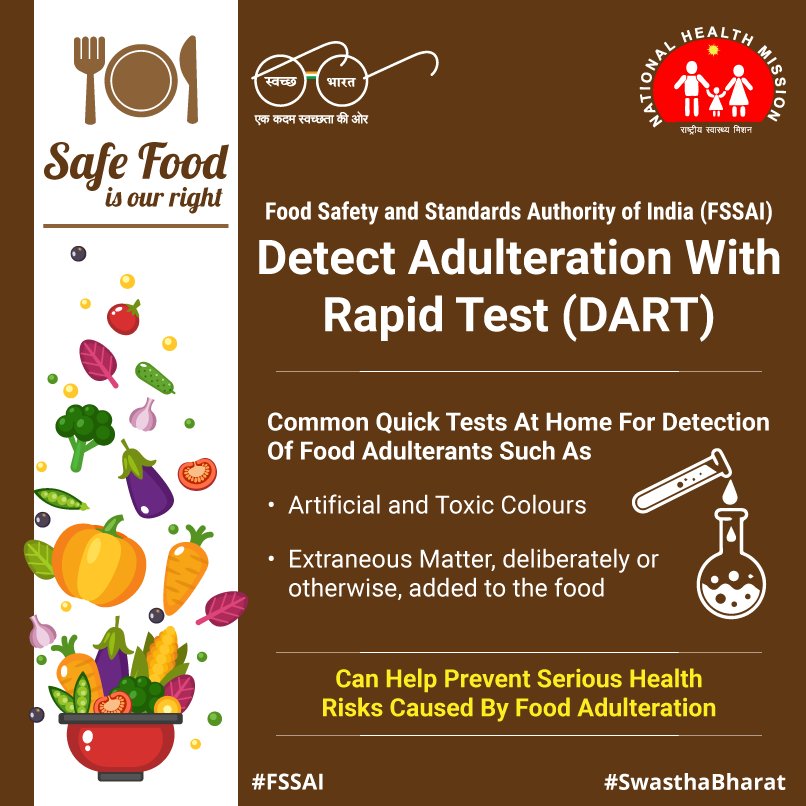
Eat Right School Posters
Food adulteration refers to the practice of adding to or modifying foodstuffs in order to increase saleability and/or profitability. While historians have traced the practice to antiquity, it only gained widespread public and parliamentary attention throughout the Victorian period, and formed a nexus around which disparate social concerns - including race, gender, empire, free trade, and.

Food adulteration
Food adulteration is generally defined as the addition or subtraction of any ingredient from food in a way that affects the normal composition and value of the food. It was first studied in 1820 by the German chemist Frederick Accum, who discovered many toxic metals in food and drink items (Bansal et al., 2017 ; Choudhary et al., 2020 ; Ghimire.
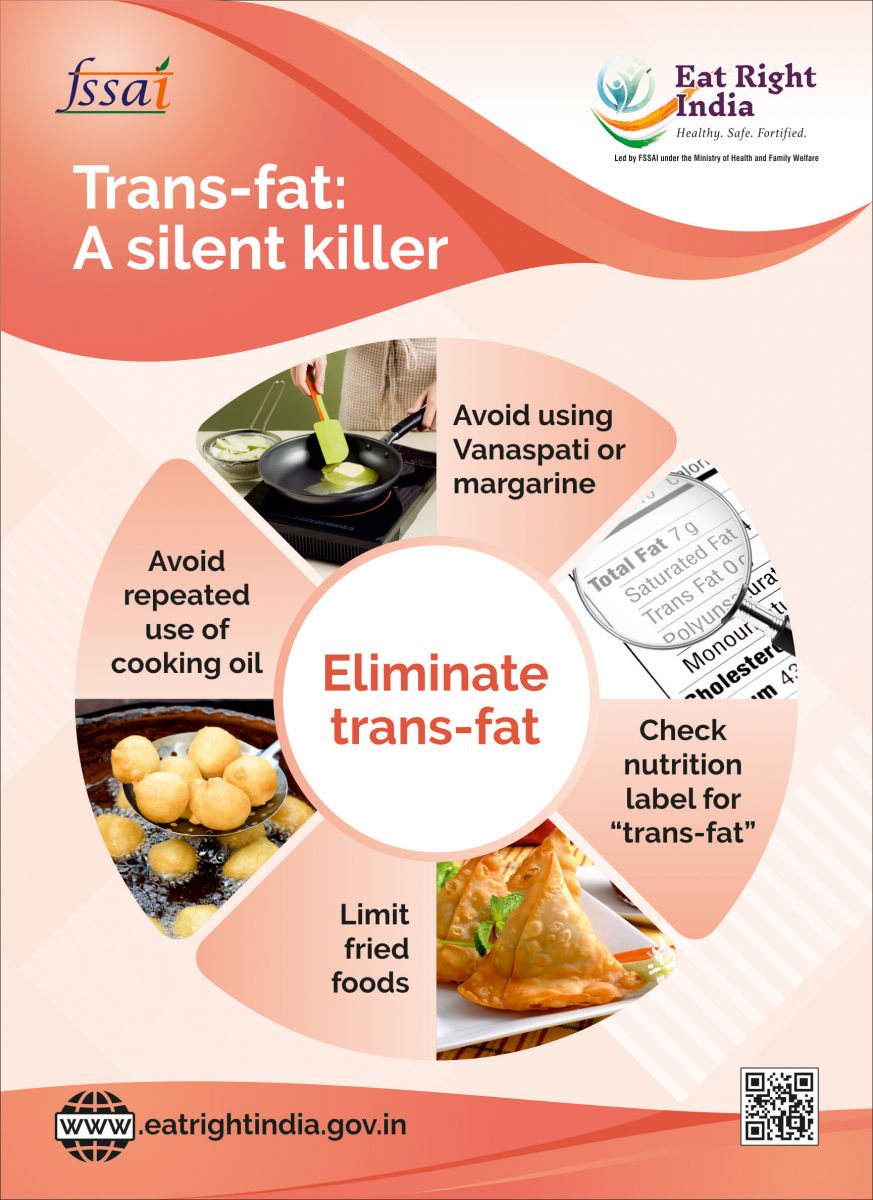
FSSAI
Food adulteration is a complicated phenomenon and involves the availability of numerous fraudulent options discovered by dishonest people. It is important to understand different forms and the dynamic nature of food adulteration and their impacts on human health. Regular market studies and the development of la-
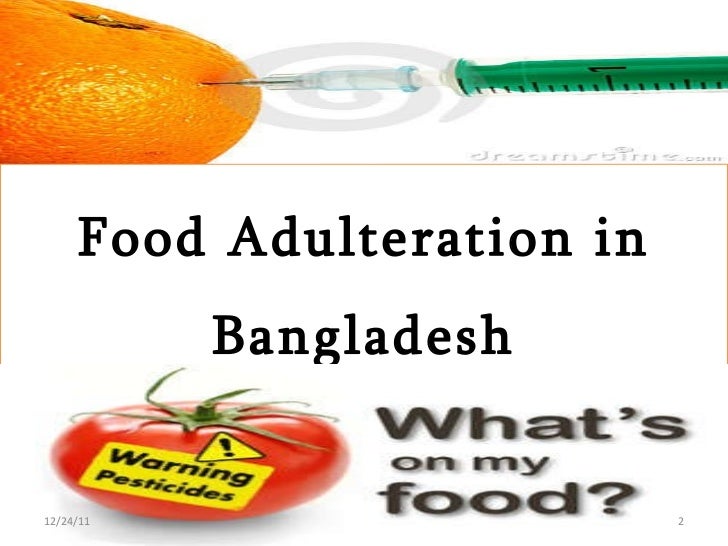
Food Adulteration
. Food adulteration is generally defined as the addition or subtraction of any ingredient from food in a way that affects the normal composition and value of the food.